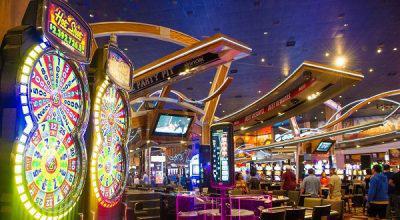Tip: “to ensure promptness” – fact or fiction?
You’ve probably heard somewhere that the term “tip” (synonymous with gratuity) is an acronym for something like “To Insure Promptness,” or “To Insure Performance,” but that’s actually a myth. Linguists believe that this particular usage of the word may come from the seventeenth century slang term that meant “to give or share.” Wherever the word came from, this social norm is something we’re all confronted with on a regular basis.
Tipping, particularly in the U.S., is a hot topic that comes with a wide variety of dilemmas – how much or what percentage should I tip, which staff members do I need to tip, when and how should I do so, for which kinds of service is tipping strongly recommended, why is it even necessary when I’m already paying for my meal, drinks, room, etc. …The list goes on.
If you’ve ever wondered about the answers to these questions, look no further. We’ve done the research, scoured the Internet, and consulted the experts, and now we’ll try and advise you as thoroughly as possible with some explanations as well as a few different approaches. (An aside: As tipping culture varies a lot around the world, please note that this guide is specific to luxury casino resorts within the United States.)
Get into that jet-setting mindset
Some starter tips (sorry, couldn’t help it!)
If you’re not a high-rolling millionaire, this trip you’re organizing is probably a special treat – maybe your thirtieth birthday is coming up (if so, congrats!) or you’re planning your high school best friend’s bachelorette party. Whatever the occasion, it might be somewhat unfamiliar territory, so you need to be prepared in order to ensure an unforgettable trip for everyone.
Be ready
Here’s our first basic really-should-be-a-no-brainer-but-still-somehow-gets-overlooked tip. You’ve prepared for everything, haven’t you? You’ve organized outfits for different occasions and weather changes, prioritized which attractions you want to visit, packed a first aid kit (can never be too prepared) – now make sure you’re ready for the inevitable tipping situation as well.
Keep your small bills handy so that you don’t have to wrestle with all your bags trying desperately to figure out which one your wallet is in, only to get embarrassed when you have to calculate and ask for change – all in an effort to make sure your attendant doesn’t leave empty handed and disgruntled.
Do your research
Find out what the tipping policy is beforehand! It doesn’t hurt to look into this before booking a place, and it can even be a deciding factor in terms of where to stay. Some hotels have no-tipping policies. In particular, many luxury resorts are all-inclusive, which means gratuities are already a part of the package, probably in the form of a daily fee. (If you hate calculating tips, this could be a significant perk!)
Even if the resort isn’t all-included, be sure to check the bill each time to see if gratuity has already been included for that particular service (which it might be, if you have a reservation for fourteen at a crowded restaurant). Again, make sure you’ve already looked into this to avoid that awkward situation where you’re googling frantically for advice forums or debating in whispers with your friends.
Understand the context
 Here’s some insight into tipping in the U.S. in general, especially regarding wait staff. One aspect of the controversy is the simple question of why. Customers are already paying (and often that price seems like it should be more than enough to cover everything). You might even feel a little resentful about it – aren’t we essentially paying extra for people in the service industry just to do their job, and shouldn’t it be assumed that they would already be doing it in the first place? If that describes your reasoning, we understand how you feel, but keep the following in mind:
Here’s some insight into tipping in the U.S. in general, especially regarding wait staff. One aspect of the controversy is the simple question of why. Customers are already paying (and often that price seems like it should be more than enough to cover everything). You might even feel a little resentful about it – aren’t we essentially paying extra for people in the service industry just to do their job, and shouldn’t it be assumed that they would already be doing it in the first place? If that describes your reasoning, we understand how you feel, but keep the following in mind:
Tipping in the states has become the norm because wages in the service industry are much, much lower here in comparison with other countries. Just think: federal minimum wage is $2.13 an hour for employees that receive $30 per month in tips (that means if they work twenty shifts a month, earning a tip of $1.50 per shift would place them in this category).
On top of that, employees work as part of a team, so they share tips, which are also taxed. Depending on the policy at a particular establishment, either all of that shift’s gratuities are pooled and divided, or servers divide tips for their support staff. That means that even if someone goes above and beyond, they aren’t guaranteed to benefit from it. In short, tips are not merely a supplement, and just because there’s a sign on the wall somewhere that says a service is complimentary does not mean you shouldn’t tip! Tips are usually the main source of service staff’s salary.
Of course, we know that it’s not personally the customer’s fault if the company is treating employees unfairly, but until systemic change happens, that’s how it will continue to work. Try to be understanding. These employees often work long, busy shifts at minimum or just above minimum wage. If this trip is a splurge, try to be generous with those who are making your experience as enjoyable as possible. Trust us: being able to show your appreciation for good service will boost your own mood, too!
Read on for our guidelines to tipping at a luxury resort. If you’re staying at a nice hotel that isn’t too over the top, just decrease the amount by a dollar or two. (Although of course, you can always tip extra for excellent service or if you’re feeling particularly generous.)
On your way in…
Parking valet: $5 for the expected level of service; $10 to $15 for anything above and beyond (meaning: seat warmers on or AC adjusted and extra care taken with requests).
Doorman: not necessary for simply holding the door, but $2 to $3 for a cab or for assisting with luggage.
Bellhop: $2 to $3 per bag, depending on weight, more if heavy lifting is required or for longer distances; $5 or more if he shows you around the room or offers further assistance.
Concierge: $5 to $10 for standard service; $20 for any more unusual or demanding requests that you might have.
Airport shuttle driver: $2 to $5, more for heavy bags.
During your stay…
Housekeeper: $3 to $5 per night, $10 if you’ve had a particularly rough night and the room “shows signs of wear and tear”; be sure to leave this on your pillow or a cleared surface, ideally in an envelope.
Room service member of staff: 15% to 20%, more if it’s a crazy request at crazy hours of the night or morning. Note: the room service charge on your bill is for the use and general enjoyment of the room, not for the four-in-the-morning drunk burgers and milkshakes that you order.
Be aware that these tips are usually pooled, so if you want to express your appreciation to a specific individual, discreetly hand your tip to them in person.
While you’re dining…
Waiter: the usual 15% to 20%, based on quality of service. All percentage-based tips should be calculated pre-tax.
Bartender: $1 to $2 per drink, 20% for specialty cocktails.
Busser (at a buffet): $1 to $2.
At the tables…
 First, there’s a common misconception that needs to be cleared up. In general, it stands to reason that the happier we feel, the more altruistic we are likely to be. If you’re playing well, that sense of luck or general well-being tends to rub off on other people, like passing on good karma. However: please, do NOT decide to tip or not tip solely based on your overall satisfaction (read: whether you’re winning or losing).
First, there’s a common misconception that needs to be cleared up. In general, it stands to reason that the happier we feel, the more altruistic we are likely to be. If you’re playing well, that sense of luck or general well-being tends to rub off on other people, like passing on good karma. However: please, do NOT decide to tip or not tip solely based on your overall satisfaction (read: whether you’re winning or losing).
As frustrated as you may feel, don’t forget: the casino staff is not responsible for how well or poorly your night is going. It’s a matter of however much skill and/or luck you happen to possess in the moment. All they can do is show up, be professional, smile, and do their best to ensure you have a good time.
Cocktail waitress: $1 to $2 per drink. This can be a hit-or-miss trick depending on the casino, night, or individual server, but some experienced gamblers recommend promptly tipping $5 to $10 for the first drink, then $2 per drink after to ensure continued good service. Have small bills or chips ready each time the waitress returns with your drink. If you’re not in any rush, $1 per drink is fine.
Slot machine attendant: $10 to 20 for a $1000 hand payout, or 1% of the payout.
Dealers: We found a surprising amount of variation in what players recommended when it comes to dealers. We’ve compiled a few different opinions; it’s up to you to try them out and see what you’re most comfortable with.
How? It’s customary to use chips instead of bills, though both are fine. Instead of handing them over, place the chips on the table outside of your betting area and inform the dealer that they’re for him or her. Or, you can choose to place bets for your dealer, which can make the game more interesting.
When? This can be done whenever it feels natural to you: at the end of each round, when you sit down at the table, when you’re leaving the game, when the dealer’s session ends, or after a big win.
How much? The most basic, no-nonsense guideline that we found is to give a $5 chip per session or hour. If you feel like giving an additional tip, place a side bet for the dealer, up to 10%. In general, if you’re at a high stakes table, the tip per session should increase proportionately. If you’re sharing your winnings, you can do so by tipping 1% to 5% of each pot. If you win more in subsequent pots, your tips should also increase. Here are some of the alternate opinions from different sources:
- 10% of your net win.
- 10% of your initial buy-in.
- 15% to 20% of your total buy-in during the session.
- 5% of your bet at the end of dealer’s session.
- Calculate tip 2/3 according to the service and 1/3 according to how much you’re winning or losing, approximately half of your average bet per hour.
- Tip a small blind for each win or a big blind at the end of the dealer’s session.
All in all
This is a guide to tipping etiquette, and we’ve been focusing our efforts primarily on tipping itself – giving gratuity after you’ve already made the decision to do so. But, here’s our last important note. Despite some of the very loud opinions on and offline, tipping is not actually mandatory. We’ve already covered the arguments for tipping in terms of minimum wage and people who really do depend on it, but that 15%-20% is never required (unless of course it’s already included in the bill).
If you’ve been polite and reasonable with your requests and have only been met with truly appalling service (meaning: aggressive refusal to do their job, rude attitude, inappropriate language, insults, or anything else along those lines), tipping is up to your own discretion. Leaving a 10% tip sends a crystal-clear message that you’re dissatisfied with the service. Not leaving a tip at all says even more.
That being said, if you do find yourself in a situation where there is consistently subpar service, consider asking to speak with a manager – this kind of behavior is unacceptable, especially at a high-end establishment. Having a conversation with the manager could not only clear up the situation but also give the server a chance to shape up and even improve the rest of your experience there. Plus, there’s always the possibility of some kind of compensation.
Hopefully by now you’re feeling a bit more informed and equipped to handle this aspect of your casino resort experience. Rest assured that calculating gratuity doesn’t have to be the most dreaded part and enjoy your trip!




